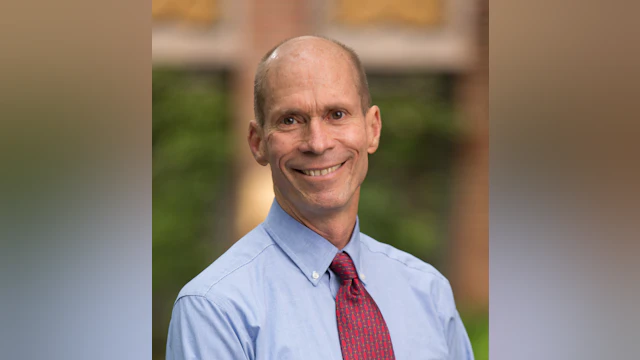May 31, 2019 - This May, the American Foundation for Suicide Prevention honored Dr. Gregory Simon, at its annual Research Awards Dinner, for his work using artificial intelligence with electronic health records to identify individuals at risk for suicide.
Dr. Simon is an investigator at Kaiser Permanente Washington Health Research Institute and a psychiatrist in Kaiser Permanente’s Behavioral Health Service. He is also a Research Professor in the Department of Psychiatry and Behavioral Sciences at the University of Washington. His research focuses on improving access to quality mental health care, especially for people with mood disorders or at risk for suicide.
How did you first get involved with suicide research?
For more than 25 years, our research group has focused on developing, evaluating, and disseminating population-based programs to improve care for depression and other mood disorders. We hope to identify effective programs that can reach large numbers of people, especially people who are poorly served by traditional mental health care. Our specific focus on suicide prevention began only six to eight years ago. Two recent developments have opened the door for effective population-based suicide prevention programs, in particular. First, we now have more accurate methods for identifying people at risk for suicide. Second, we now have evidence that some specific treatments (like Dialectical Behavior Therapy and Cognitive-Behavioral Therapy) can reduce that risk. I am much more optimistic about suicide prevention than I was 10 years ago.
What is the main take-away from your research, and what would you like people to know from your findings?
We are making real progress in population-based suicide prevention. We can learn from some of the most important public health successes of the last few decades, including reducing deaths due to cardiovascular disease and colorectal cancer. In those areas, real progress came from systematically doing things that were known to work, such as identifying people who are at risk, encouraging effective treatments for everyone, and following up with every person who slips through the cracks. Doing simple things well really does make a difference. For example, doctors and nurses asking simple questions about suicidal thoughts can identify people at risk. Outreach by phone or text messages can help people find and stay connected with effective care.
What do you see as your next big project in suicide research?
We are now finishing a very large randomized trial of outreach programs for people at high risk for suicide attempt. That study included almost 19,000 people in four large health systems. We are studying whether simple outreach programs, delivered online and by telephone, can be effective for large numbers of people. We hope, through this study, to show that population-based outreach can significantly reduce risk of suicide attempt, but we won’t have the results of that trial until early 2020. We are also very interested in whether new ketamine-like medications can reduce risk of suicide. As those medications become available, we are planning research to rapidly evaluate their real-world impact.
What would you want to say to someone thinking about suicide?
Having thoughts of suicide is relatively common, especially among people who live with depression or other mental health conditions. But many people who have those thoughts feel too embarrassed or ashamed to tell anyone else – and that, in itself, makes those thoughts much more dangerous. You are not alone, even if it might feel that way. There are many paths to finding help and support – including calling or texting a helpline, talking to family and friends you trust, talking to a family doctor or mental health provider. What’s the right first step for you?
What would you want to say to a person who has lost a loved one to suicide?
This is one of the most painful and frightening losses anyone can experience. And many people who experience suicide loss keep it to themselves – so they never realize how many other people have a similar experience. When you are ready (or even before you think you are ready), find a way to start talking about your experience. AFSP can help you find different ways to get support and start that conversation.
